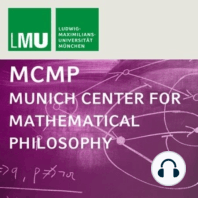74 min listen

A Hypothetical Conception of Mathematics in Practice
A Hypothetical Conception of Mathematics in Practice
ratings:
Length:
57 minutes
Released:
Jun 30, 2015
Format:
Podcast episode
Description
José Ferreirós (Sevilla) gives a talk at the MCMP Colloquium (11 June, 2015) titled "A Hypothetical Conception of Mathematics in Practice". Abstract: The aim of the talk will be to present some of the basic aspects of my approach to mathematical epistemology, developed in the forthcoming book Mathematical Knowledge and the Interplay of Practices (Princeton UP). The approach is agent-based, considering mathematical systems as frameworks that emerge in connection with practices of different kinds, giving rise to new practices. In particular, we shall consider the effects of placing the rather traditional thesis that advanced mathematics is hypothetical – based on 'constitutive,' not representational, hypotheses – in the setting of a web of interrelated practices. Insistence on the coexistence of a plurality of practices, I claim, modifies substantially that thesis and allows for the development of a novel epistemology.
Released:
Jun 30, 2015
Format:
Podcast episode
Titles in the series (22)
A useful method for obtaining alternative formulations of the analytical hierarchy: Colloquium Mathematical Philosophy by MCMP – Philosophy of Mathematics